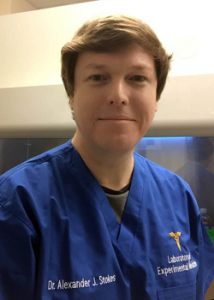
A $500,000 grant will help the University of Hawaiʻi provide Hawaiʻi’s healthcare community with facilitated access to open-source artificial intelligence (AI) and machine learning (ML) tools. This initiative stands at the forefront of addressing the health disparities affecting minority and marginalized communities in Hawaiʻi.

UH was selected for the competitive subaward from the NIH—AIM AHEAD program (The National Institutes of Health’s—Artificial Intelligence/Machine Learning Consortium to Advance Health Equity and Researcher Diversity), which seeks to advance health equity and research diversity through AI/ML. The NIH—AIM AHEAD program was acknowledged by President Joe Biden in the recent Executive Order on the Safe, Secure, and Trustworthy Development and Use of Artificial Intelligence, with a call to accelerate AIM—AHEAD grants and highlight activities in underserved communities.
The university’s “ARCH Collaborative: Establishing an AI Resource Concierge for Hawaiʻi” project, led by Alex Stokes at the UH Mānoa John A. Burns School of Medicine (JABSOM), with co-principal investigators Sean Cleveland, UH Information Technology Services cyberinfrastructure scientist, and UH Mānoa Information and Computer Sciences Department Assistant Professor Peter Washington, is at the forefront of this commitment to ethical AI in healthcare.
“AI/ML and data science will play an increasingly significant role in enhancing healthcare, accelerating solutions for complex health issues, and enabling healthcare providers to work more efficiently and smarter,” said JABSOM Interim Dean Lee E. Buenconsejo-Lum. “This award underscores our strong commitment to innovation and inclusivity in addressing our community’s healthcare needs. The ARCH Collaborative is poised to ensure equitable access to AI advancements in healthcare for diverse communities across Hawaiʻi.”
UH President David Lassner said, “Obtaining the NIH-funded AIM AHEAD subaward demonstrates UH’s creativity and capacity to apply emerging technologies to advance our distinctive healthcare imperatives. We are steadfast in our commitment to improve health outcomes for Hawaiʻi’s diverse population, with a focus on those who face the greatest health disparities.”
The initiative’s impact is broadened through a partnership with Chaminade University, under the guidance of Helen Turner, focusing on educational pathways and upskilling community organizations in AI capabilities while enhancing engagement and outreach to underrepresented communities.
Stokes, following closely on the heels of two previous NIH awards—one for AI/ML education and another for research on health outcomes and AI/ML use to alleviate patient underdiagnosis—said, “Leading the ARCH Collaborative allows us to harness advanced AI technologies, which is pivotal for transforming healthcare in Hawaiʻi and the Pacific. It’s a privilege to collaborate with such a dedicated team and partner with community-focused organizations deeply invested in our mission.”

